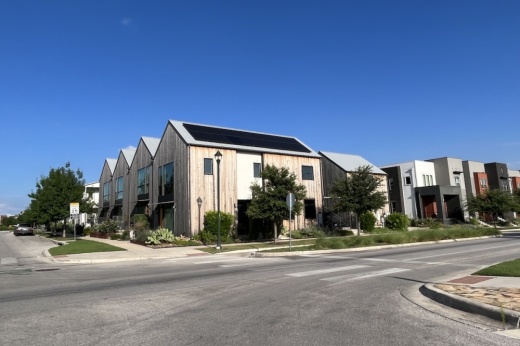Community Impact interviewed Longhorn Solar CEO Louis Petrik and Patrice Parsons, executive director for Texas Solar Energy Society, to learn more.
This interview has been edited for length and clarity.
Why are we seeing an increased trend in solar panels in Central Texas?
Parsons: In 1976, when the Texas Solar Energy Society started as an organization, solar hot water heaters were the only solar item on the market. As the cost of panels has continued to drop, solar panels are becoming more affordable as individuals continue to see their energy bills drop with the installation of solar on their roofs.
Additionally, as the result of storm Uri, homeowners decided that they would prefer to have their own backup systems in the event of a power outage. Since that storm, the market began to see installations of solar plus storage take off. Almost every neighborhood you enter will have solar panels visible. As you see more panels go up, then they become more viable as an alternative power option.
Do solar panels really save people money in the long run? How does that work?
Petrik: Yes. Electricity prices in Texas have increased substantially over the last few years. If you finance a solar system, then 12 months of fixed payments are less than 12 months of variable electricity payments. You also own your solar system, which is an asset while you are just renting your electricity from your provider. If you buy without financing, then the break even is around 11-12 years. Solar systems produce energy for at least 30 years.
Are solar panels more reliable in providing electricity than other alternatives?
Petrik: With a battery, then yes. When the grid goes down, then you still have power. If you do not have a battery and the grid goes down, then the system has to shut down also for safety reasons.
What happens if a person's solar panel gets damaged by hail or other extreme weather?
Petrik: Solar panels are much more resilient to hail than most people would think. In most cases, the roof gets damaged but not your solar panels. If the panels do get damaged by hail, then your homeowners insurance pays for them with all of the rest of the damage caused, including the roof, gutters and cars.
How are solar panels disposed of?
Petrik: Damaged panels should be recycled. You must check with your installer to make sure this happens.





